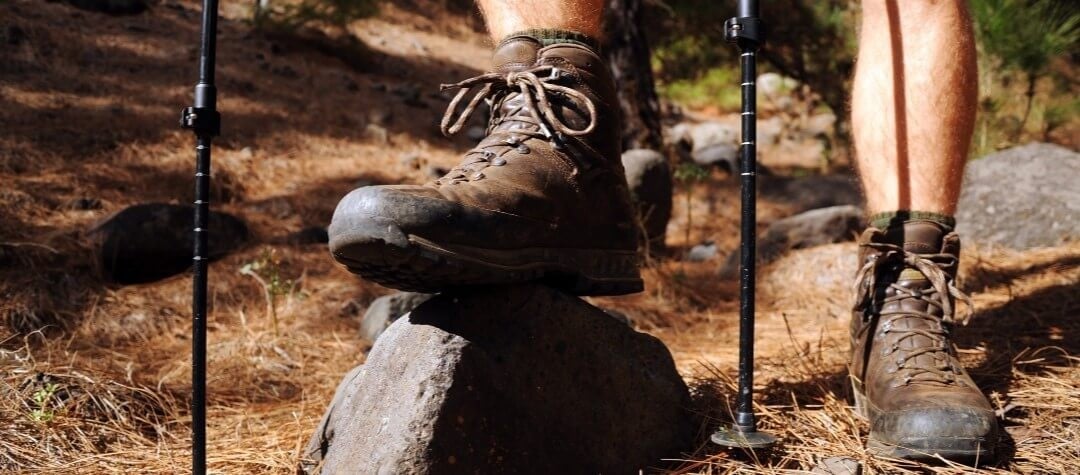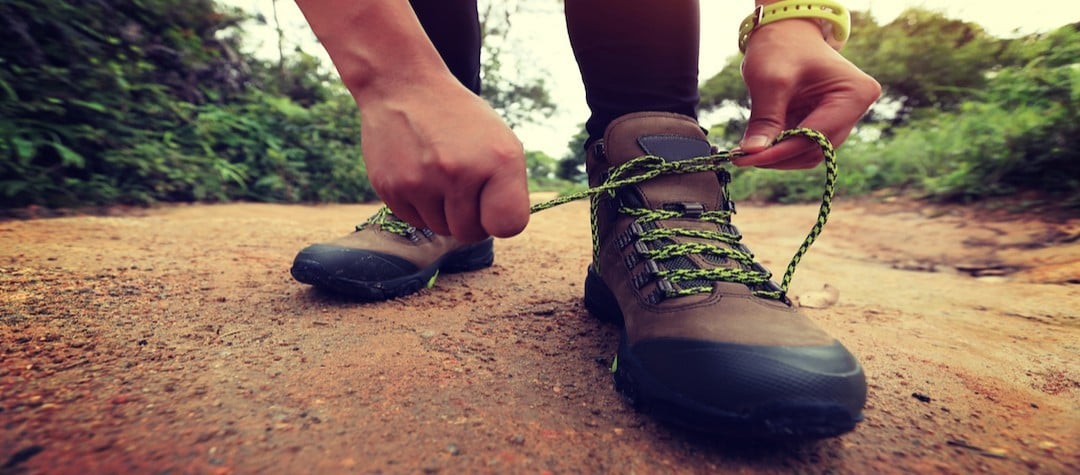Hiking can throw up some hidden pitfalls - make sure you avoid the 10 biggest mistakes with our handy guide.
There’s plenty to think about when preparing to go out hiking and often people fall into the trap of making simple mistakes that can become major problems once out on the hills. Check out the 10 biggest mistakes hikers make to ensure you don’t make these common mistakes yourself…
1. Not thinking through what you wear
Wicking fabrics like wool and polyester are always better than cotton products, which take longer to dry out. Moisture on your skin siphons off body heat, leaving you more susceptible to hypothermia. This includes jeans, which can ice up in below-freezing conditions, so avoid denim. Comfortable footwear is also key to try and avoid blisters and sore feet.
2. Packing the wrong gear
Don’t choose an item just because of the price tag, whether that’s a sleeping bag, tent or waterproofs. What’s more, pick the right backpack for the trek you have in mind – it should be robust, the right size and quality, and handy to pack and unpack. Specialist outdoor shops can help, and the better-known brands offer plenty of advice and information. Don’t make your backpack too light just for the sake of a speedier hike. When choosing a backpack, consider how far you’re going, how long you’re out, the time of day and season, and the weather.
3. Forgetting your first priority is first aid
Many novices forget to bring a first-aid kit or carry too many medical aids in their kit. Make sure you give your first-aid kit as much thought as your clothing and that it’s appropriate for the length of your trip, size of your group and your medical know-how. If you don’t know how to use an item, maybe you shouldn’t carry it. Packing obscure supplies in place of additional bandages and painkillers makes no sense.
4. Skipping breakfast
Never skip breakfast, it’s the most important meal of the day. It will energize you, get your metabolism going, and get you ready to take on a mountain. Choose something that's full of fibre, to keep you full, and protein. Yoghurt with fruit and granola, eggs, or even a smoothie are good examples.
5. Running out of the right food and water
Take into proper consideration how hungry you will get en route. You may get hungry an hour in, or even earlier. Your body will crave protein, good fats and carbs. Pack fruit, granola bars, nuts, trail mix, and sandwiches. Don't underestimate the power of snacking. Make sure you’ve enough water for the hike you’re taking on. One water bottle for as six-hour hike is not enough. You need at least two, and that’s just you. You’re expending energy and sweating. Your body needs water to rehydrate. Juice or energy drinks are okay, but water is better.
6. Getting lost and not considering alternatives
Don’t scrimp on compasses or other gadgets that might see you through. A good map is also vital, however well you think you know an area or however well a trail is marked out. Book stores and visitor centres will stock maps and guidebooks for certain well-trodden routes, and those often help with timings, checklists and directions, so you can prepare properly and succeed on the day.
7. Not paying attention to the weather
Don’t take on exposed peaks and ridges if a storm is brewing. Lightning is attracted to tall, isolated objects, and that might include you, on a summit or by a lone tree. Secondary strikes can be just as deadly. A little rain isn’t a reason to cancel a hike but even the best precautions might not protect you from high winds, heavy snow or blazing heat. Seek out long-range weather forecasts for the area and keep up to date with the local outlook before you set off. Again, weather apps can help keep you up-to-date. Bear in mind just where you might be if that storm breaks and whether you’ll be able to seek out shelter.
8. Doing too much, too soon
Choose a route that’s right for you , if it’s only early days then act accordingly. It’s not about bravado and keeping up with your mates. Don't push yourself to the point of exhaustion. Properly pace yourself. It should be about enjoyment.
9. Leaving it too late to set out
Think things through. If a guide book suggests so many hours for a trek, bear that in mind. Don’t start at three in the afternoon for an expected eight-hour hike, particularly if the nights are short. Take your speed and the size of your group into consideration. If you start later, revise your plans accordingly. It only takes a few wrong turns to get in trouble and for time to work against you.
10. Failing to consider the environment
You may only be in the area a day or so, but think of the wildlife around you and take some responsibility. It’s important to make sure you don’t discard food wrappers and bottles, and also make sure not to leaving gates open or campfires smouldering. Leave no trace. Furthermore, remember where you are. Make sure you allow yourself enough breaks to rest when you get a chance, take a couple of photographs perhaps. In short, enjoy the great outdoors.













